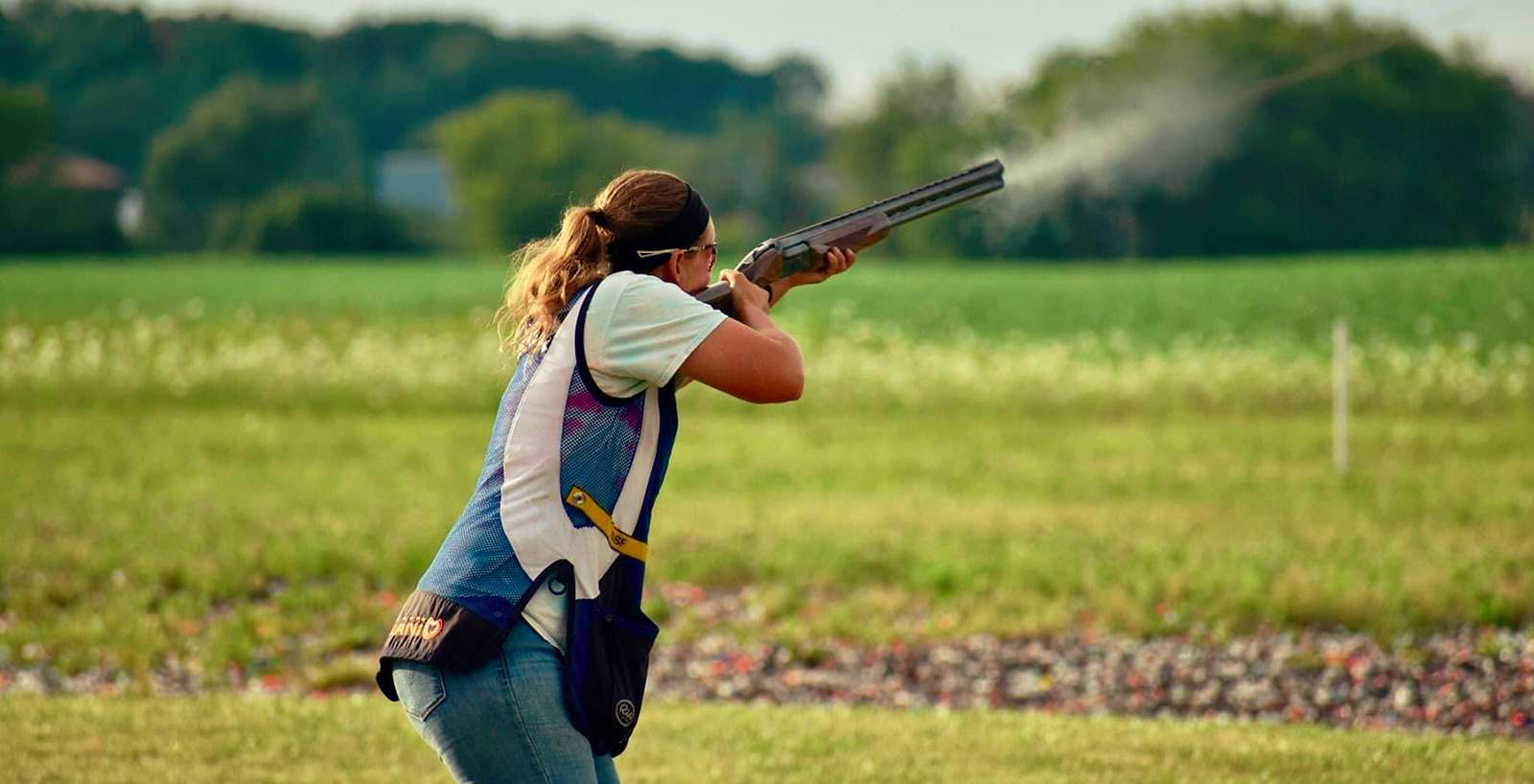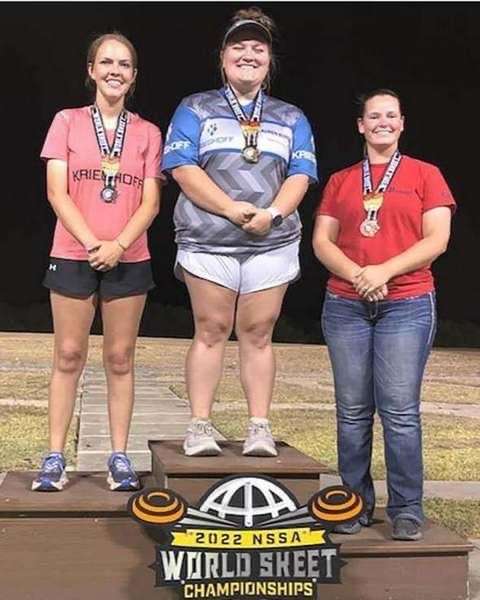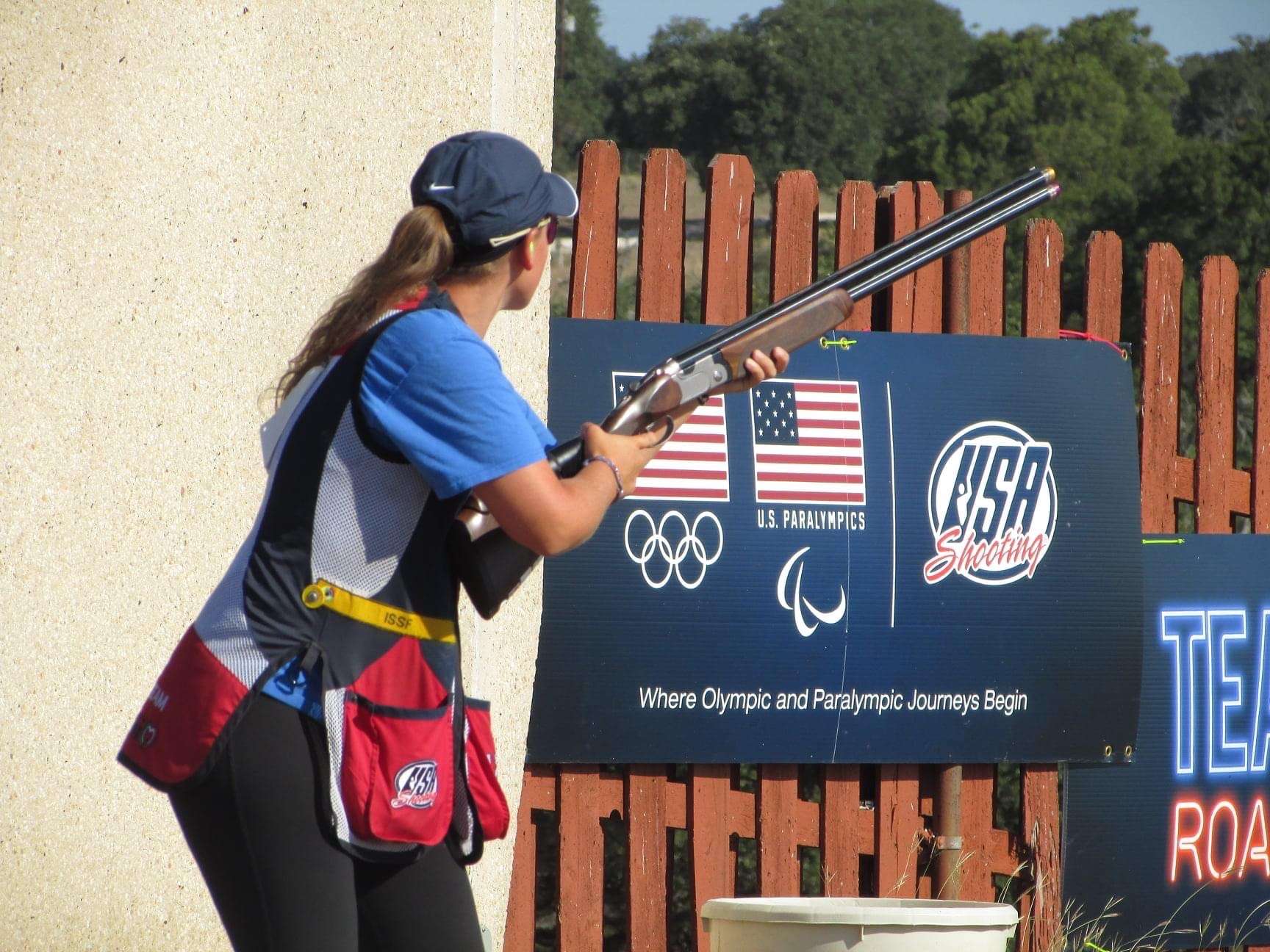
By CRISTINA JANNEY
Hays Post
Behind the badge of one of Hays' finest is a champion skeet shooter and a woman who dreams of someday being an Olympian.
Erin Escritt, 25, moved to Hays to join the police department in May 2021.
Originally from Minnesota, Escritt has been shooting since she was 12 and shooting skeet since she was 17.
Escritt first came to skeet shooting through 4-H. She shot trap on her high school team. During her senior year, Minnesota introduced skeet competitions.
She was a member of the shooting team for Concordia University in Seward, Neb. She shot all four years as an undergrad and was a graduate assistant coach while she completed her master's degree. Shooting sports did not become a varsity sport at Concordia until her senior year.

She continued with her competitive shooting after graduation, including competing internationally in Dubai, United Arab Emirates.
During her latest competition Oct. 3 to 6 at the World Skeet Championships in San Antonio, she shot 149 of 150 targets, tying for second place. She placed third after she lost a shoot-off.
In her class, she placed fourth in .410 and placed fourth in the HOA, which is a combination of the four events based on gun gauges — 12 gauge, 20 gauge, 28 gauge and .410. She shot 438 out of 450 targets.
Skeet was a competition that originated from hunting birds. The early competitions actually used live quail, Escritt said. Live fowl have been replaced with clay targets.
In U.S. competitions, shooters have their guns premounted at their shoulders when the clay target is released.

However, Escritt dreams of eventually qualifying for the Olympics. In international competitions, shooters start with their guns at their belly button and mount them to their shoulders after the target is released.
The clay targets are fired at a faster velocity — about 10 to 20 mph faster than a standard target.
In order to qualify for the Olympic team, you have to earn points by shooting at both the national and international levels.
"I think it would be tight to do 2024," she said of qualifying for the Olympics. "I don't have enough points to do it. 2028 is where I am hoping. ... I think that is a route I can manageably do."
Ammunition and travel are both expensive. Most of the competitors at the international level are sponsored and are basically competing as professionals.

The local sportsmen's club doesn't offer the setup Escritt needs to practice for international competitions, so she and her husband, who is a trap shooter, drive to Grand Island, Neb., to practice.
At her height, Escritt was shooting three or four times and week, but based on finances and her work schedule she's down to once or twice a week. She usually shoots four or five boxes of shells at a time (100 to 125 shots). A box of shells costs about $10.
Escritt came to be a transplant to Hays through her husband.
Her husband, Cody, was on the Fort Hays State University shooting team and now is a volunteer coach for the team. The couple decided to settle in Hays after they both graduated from college.
Erin's father is in law enforcement. She studied biology, chemistry and forensic science in college. Her master's degree is in business administration. However, she decided she would much rather work with people than in a lab.
She applied and received a job with the Hays Police Department.
"I've always wanted to be a police officer," she said. "My dad is currently still a police officer in Minnesota. I fell in love with it."
She said being an officer has been one of the best jobs she has ever had. She said she enjoys the connections she makes in the community.
"I get to deal with everyone. Sadly enough I get to deal with them on their worst days," Escritt said, "but I can still bring joy to some people and talk to them like human beings and have a connection with them.
"Everything is different. I have never gone into the same situation in the exact same way. Everyone always reacts differently and has different conservations. I love it."
However, it's not an easy profession, she said.
"You go on the worst days of people's lives, and you get to see that stress in people. You try to make the best of the situation."






